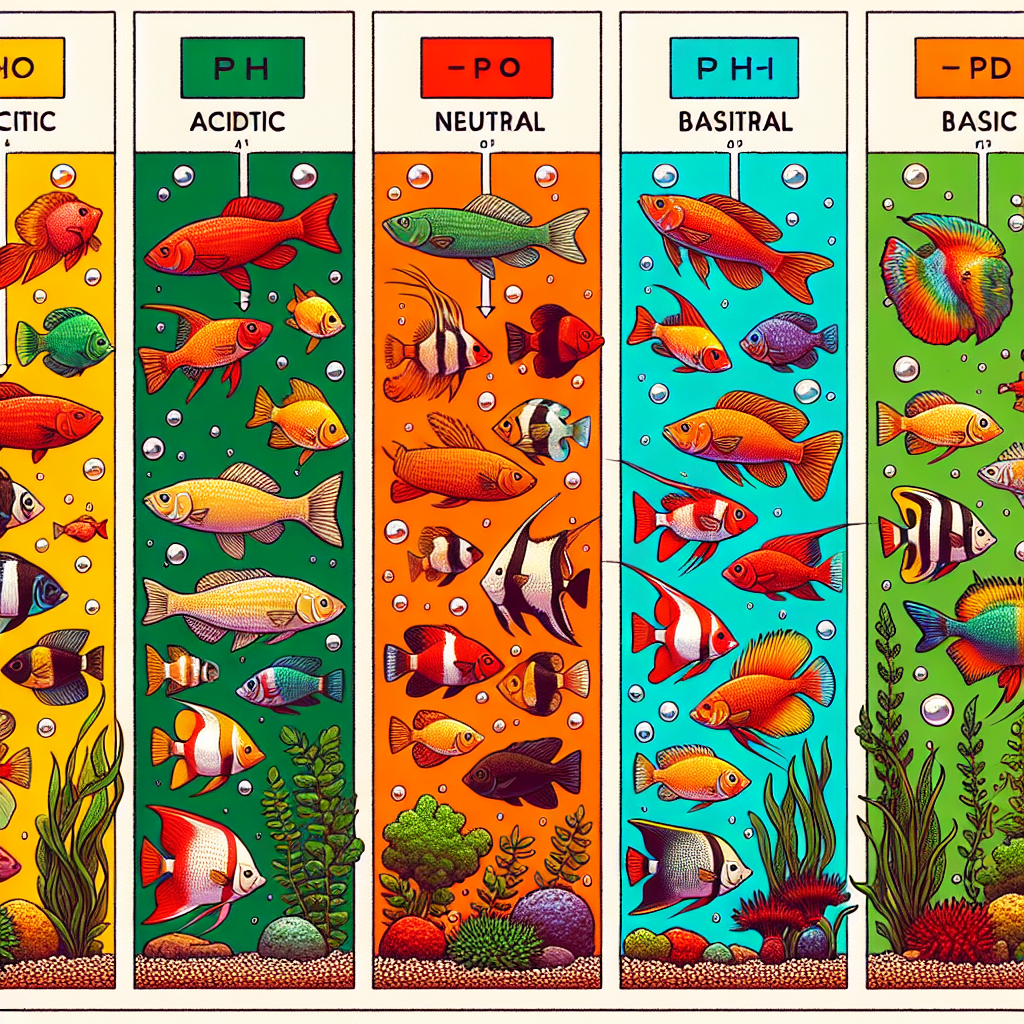Essential Water Chemistry
Healthy aquarium water is not just about keeping it crystal clear. The chemical parameters of the water in your aquarium are crucial to the well-being of your aquatic friends. Understanding and maintaining the right water chemistry is fundamental, providing a stable and healthy environment for your fish and plants. Let's delve into the major chemical parameters you should monitor in your aquarium.
Understanding pH Levels
pH levels in your aquarium water indicate how acidic or alkaline the water is. The pH scale ranges from 0 to 14, with 7 being neutral. Most freshwater fish thrive in a range of 6.5 to 7.5, while marine life often requires a slightly more alkaline environment. It's essential to research the ideal pH for your particular tank inhabitants and to test the water regularly.

Balancing Water Hardness
The hardness of your aquarium water refers to the amount of dissolved minerals it contains. General hardness (GH) measures magnesium and calcium, which are essential for the health of fish and plants. Carbonate hardness (KH), also known as alkalinity, buffers the water to prevent sudden pH changes. Kits are available to help you test GH and KH levels to ensure they are within a suitable range for your tank's inhabitants.
Nitrogen Cycle Management
The nitrogen cycle is a critical process that every aquarist should understand. It involves the breakdown of waste products, like fish excrement and uneaten food, into ammonia, which is highly toxic to fish. Beneficial bacteria in the tank convert ammonia to nitrite and then to nitrate, which is less harmful and can be removed through regular water changes.
Avoiding Ammonia and Nitrite
Maintaining a well-established biological filter is vital for managing ammonia and nitrite levels, both of which should be kept at zero. Test your water frequently, especially in new aquariums where the bacterial colonies may not be fully established.
Controlling Nitrate Levels
Nitrate is the final by-product of the nitrogen cycle and should be kept under 20 ppm in freshwater aquariums and even lower in marine setups. Excessive nitrate can lead to algae overgrowth and negatively impact the health of your fish.
Salinity for Saltwater Tanks
In a marine aquarium, the concentration of salts in the water is a crucial parameter. It is measured in specific gravity using a refractometer or a hydrometer. The ideal specific gravity for most saltwater tanks is between 1.020 and 1.026. Regular testing and adjustments will ensure a stable environment for your marine life.
Important Trace Elements
Trace elements like iron, iodine, and manganese are present in minute amounts but play vital roles in the health of both fish and plants. They are often depleted over time and need to be replenished. This can be done through regular water changes or by adding specially formulated supplements.
Toxin Awareness
Harmful chemicals like chlorine and chloramine are found in tap water and must be neutralized before use in the aquarium. Carbon filters or water conditioners are commonly used to remove these substances. Heavy metals and other contaminants can also pose a risk, so it's wise to test for these, especially if there are unexplained issues in the tank.
Regular Testing and Balance
Now that you're aware of the chemical parameters that are paramount for an aquarium's stability, it's important to conduct regular tests. Many hobbyists keep a schedule for testing and recording levels to track the tank's status over time. With patience, diligence, and the right tools, even beginners can ensure a thriving aquatic ecosystem.
Endnotes on Chemistry Control
In summary, maintaining proper chemical levels in your aquarium safeguards the health of the tank's inhabitants. From checking pH to managing the nitrogen cycle and ensuring the right salinity, each parameter plays its part. By staying informed and using the right products, you'll add not only life but also longevity to your home aquarium.
Learn more about the relationship between chemical parameters and aquatic life from this EPA study.